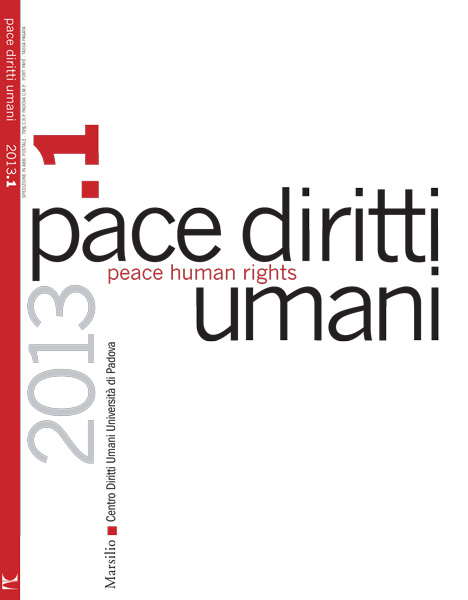Raccolte

L’integrazione scolastica dei minori stranieri in una prospettiva inclusiva: il modello italiano alla luce dell’esperienza francese
- Contenuto in
- Pace diritti umani - Peace Human Rights, 1/2013
- Tipologia pubblicazione
- Articolo / Saggio
- Pagine
- 17-46
- Lingua
- IT
Inclusive Education of Foreign Children in an Inclusive Perspective: The Italian Model in the Light of the French Experience
The existence of foreign students is a structural fact in the French and Italian school systems. It represents a unique opportunity to enrich the cultural and learning heritage of new generations. Moreover, the right to education of children not being citizens is enshrined in numerous international acts, as a fundamental human right, universal and inalienable, then attributed to each child regardless of any kind of differentiation, providing for the necessary legal instruments for its effective protection and implementation.
To understand the emergence of the model of inclusive education adopted in the member states it is easy to identify three distinct phases: in the first phase, called «schooling phase», we witness the implementation of the first regulatory acts, where the school is perceived as the privileged place to ensure the rapprochement of families of foreign nationals, who intend to permanently (or temporarily) reside in the host country, to the society.
In a second phase, called «integration», we witness the attempt to harmonise legislation and assist to the transition to an educational system that prepares the young students to the complexity of the multi-ethnic society, varied according to needs and resources. The third phase, called «inclusive», requires a new attitude towards cultural and linguistic diversity, which suggests a close interaction among all actors of the educational community, and it represents a tool to implement the concrete policy frameworks that establish multicultural societies.
A comparative analysis of the two models shows that the effectiveness of the right to education represents an important element that outlines the promotion of dialogue and matching among cultures, in a cross¬cultural perspective where diversity becomes a paradigm of the identity of the educational system, being it a privileged place of openness to all type of differences. The author highlights that, despite the legal provisions to favour the inclusive education of foreign children the two legal systems are still far from reaching the objective of equal educational opportunities.
To this end, she emphasises the role of special educational needs which allows it to take compensatory measures to support equal opportunities in terms of educational access, growth and vocational training of foreign students, because «to educate» means «to integrate in diversity», as a form of mutual enrichment, given that any form of segregation leads to a loss of cultural resources for all.

